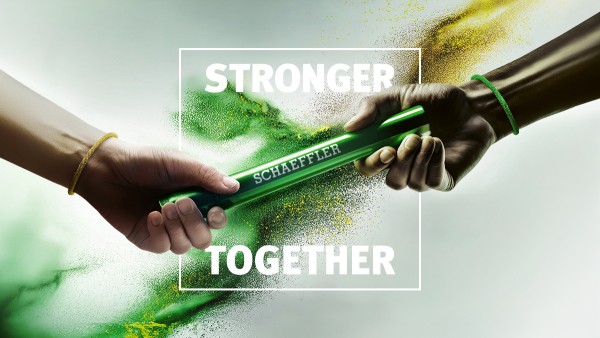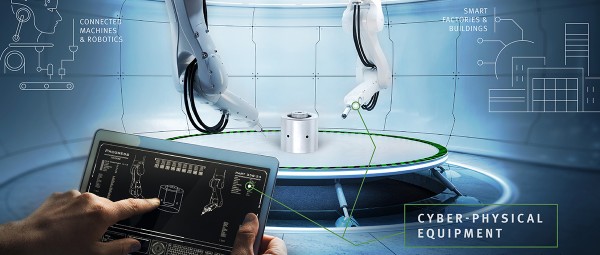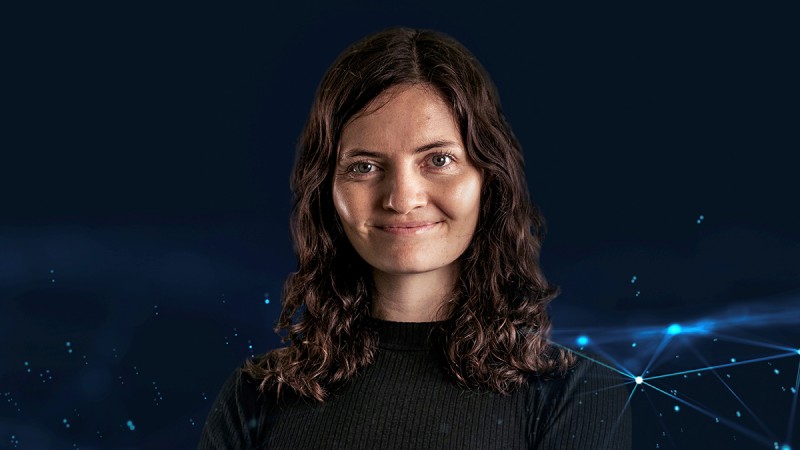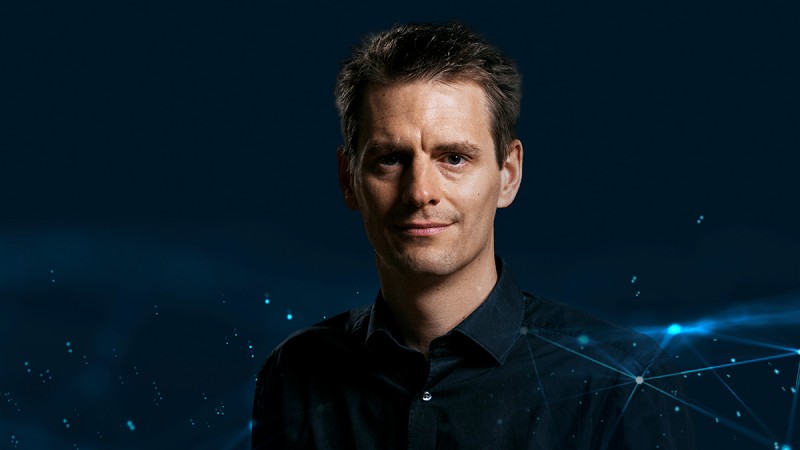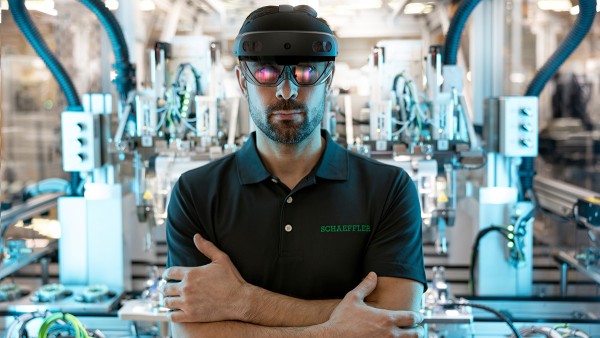Digital ambassadors: Cyber-Physical Equipment & Smart Factory
Numerous digitalization experts are paving the way for Schaeffler to realize completely digitalized factories that work efficiently and semi-autonomously. Anne-Cathrine and Sebastian, two digital ambassadors from this field, share their thoughts on this process and tell us what motivates them.
The Smart Factory expert
“We can really cut loose and try out new technologies here – I love the freedom!“ Anne-Cathrine came to Vietnam in 2022 as Head of Digitalization and Operations IT Asia Pacific. She is also responsible for the pilot plant there. “Every single machine is connected,” which means OT security plays a critical role, ensuring that the risk of cyber-attacks is kept to a minimum during data collection operations.
Back to the pilot plant: Anne-Cathrine’s team has developed the AppZ digital system landscape. This work has produced more than ten modular applications that run in real-time and are based on the ideas of those people who use them on the shop floor. “That explains the high usage rate. Our digital solutions deliver measurable improvements to our KPIs,“ Anne-Cathrine explains.
Developing solutions close to the shop floor
Every day the team has a close-up view of the progress and the value added provided by their software: The office looks directly onto the shop floor. Others have now also recognized the benefit. Anne-Cathrine: “There is a great demand from all over the world for our digital applications from the pilot plant – we are currently rolling them out step by step around the globe.”
But Anne-Cathrine and her development team are not resting on the laurels. They are working with international startups to push innovation forward. Their focus is currently on data-driven decision-making using artificial intelligence. “We regard it as a really exciting topic. After all everybody is talking about ChatGPT and other AI solutions – and we can experiment on the front line here and develop exciting applications.” Anne-Cathrine sees the use of artificial intelligence as a great opportunity for the company.
Anne-Cathrine started at Schaeffler as a working student while working on her bachelor thesis and immediately made it onto the Schaeffler Top Student program. She then did her master’s degree in Supply Chain Management at the Copenhagen Business School. She first became aware of digitalization at Schaeffler in 2016 through a presentation on “Machines 4.0”. Anne-Cathrine wrote her master’s thesis while working at Schaeffler. She became the company’s first digitalization trainee, worked on the shop floor for several weeks and gathered initial experience in China. In her role of assistant to the Chief Digital Officer, she played a strategic role and was involved in the decentralization of digitalization at Schaeffler. Upon moving to Operations IT, Anne-Cathrine assumed responsibility for strategy development in the digitalization of supply chain management, purchasing and quality. Until the Smart Factory in Vietnam called in 2022 ...
The robotics developer
Sebastian started his career at Schaeffler in the Special Machinery unit, which at the time already had a strong focus on modular production processes and highly tailored, flexible automation. In 2017, this focus led to the establishment of a strategic innovation program dedicated to collaborative robots (cobots). Cobots are sensor-equipped industrial robots that can work and interact directly with humans, without safety barriers. As well as undertaking extensive market analyses and system benchmarks, the program’s aim was to implement initial pilot solutions in collaborative production settings.
Sebastian Jonas has been the head of New Production Concepts since 2020. His team’s tasks include developing cutting-edge technologies for robotics, industrial vision and AI so as to make Schaeffler’s production systems even smarter and more autonomous.
Making production systems smarter and more autonomous
The New Production Concepts team works with both in-house and external partners – such as startups and research institutions – to develop innovative automation technologies. To this end, an 800 m² innovation center was set up in Erlangen. The first results of this work – which are already being used in production in the form of pilot projects – include solutions for bin-picking and the use of digital twins for controlling robots. Bin-picking, or random bin picking, involves the automated recognition and retrieval of unsorted objects from bulk containers. It is one of the core challenges in the use of robots for loading parts into production processes. A digital twin is a virtual copy of a product, machine, or entire production process. The use of digital twins of robots opens the way for innovative simulation processes that enable enhanced production processes and collision-free real-time control of robots – including in multi-robot applications.
A key aim of this development work is to inspire other areas and stakeholders and get them on board with the innovations under development. “This involves more than just presenting new technologies in fancy PowerPoints. First and foremost, it involves developing solutions in real production settings at our innovation center in Erlangen. This creates an excellent basis for ongoing, fruitful discussions.”
In 2020, the team also started working closely with Special Machinery on the rollout of robotics applications at Schaeffler. Since then, more than 350 systems have been implemented in Schaeffler’s series production operations – mainly cobots and autonomous transport systems for intralogistics applications.
October 2023
